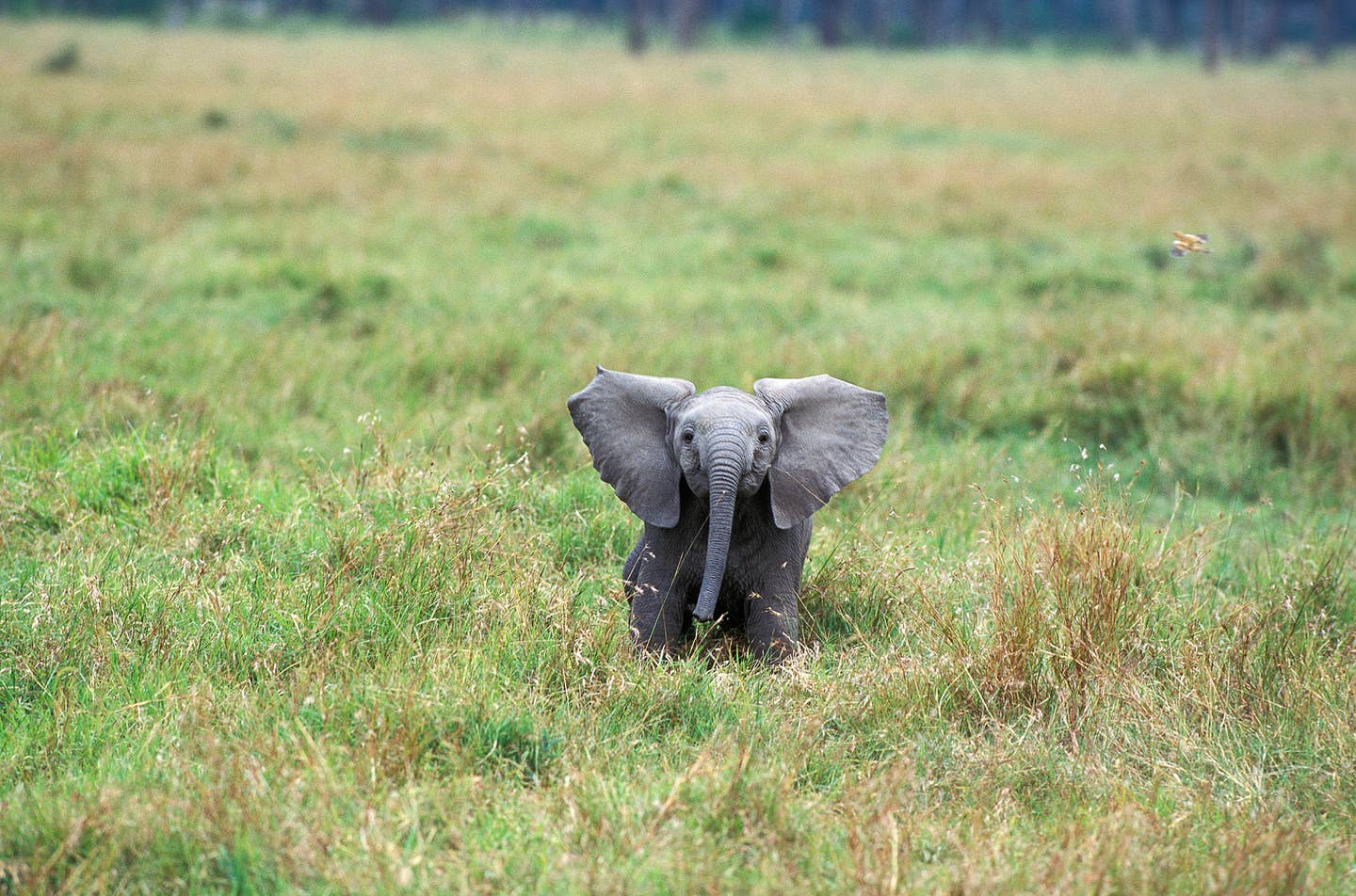
UK Set to Ban Zoos and Safaris From Keeping Elephants Captive
The United Kingdom is moving forward on a ban that will prohibit elephants from being featured inside zoos and safaris across the country. The Animal Welfare (Kept Animals) Bill is scheduled to be passed later this year and will enact regulations to elephant trade within the entire UK. The ban is supported by a forthcoming report that details the issues behind elephant captivity, explaining how zoos and safaris cannot meet the standards necessary to satisfy the elephants’ natural behaviors. The bill was started by environment minister Zac Goldsmith and joins a larger slew of zoo reforms that will supplement the Kept Animals Bill.
“Elephants are highly intelligent, extremely social, sentient beings with complex family structures and bonds that last a lifetime,” Wildlife Director of Humane Society International and Elephant biologist Audrey Delisink, Ph.D. said, welcoming the new legislation that she hopes will prevent future generations of elephants from suffering. “They require space to roam freely with other elephants where they can express normal elephant behaviors and thrive emotionally and physically.”
While in captivity, elephants are afflicted by several ailments such as arthritis, hernias, and mental degradation. Typically, elephants have a lifespan that ranges up to 50 years in the wild, but captivity shortens the life expectancy to just 17 years. The UK currently holds 51 elephants at 11 zoos across the UK. The legislation will allow the elephants to live out their lives in captivity but will prohibit any breeding or capture for replacement.
Last year, the UK started this movement to protect elephants across the country when it phased out wild animals from circuses. The ban meant to prohibit animal exploitation used typically in circuses for entertainment purposes.
The UK’s Kept Animals Bill will continue to expand to encompass other animals in captivity. The campaign will position itself against zoos and aquariums that keep other wild animals in captivity outside of their natural habitats.
“Marine mammals also suffer whilst in captivity as they too are highly social, long-lived beings and are unable to carry out their natural behaviors to their full capacity,” Delsink told VegNews. “Like elephants, marine mammals try to cope with captivity by adopting abnormal behaviors known as ‘stereotypies’ - repetitive, purposeless habits to combat stress and boredom.”
The central concern behind the legislation and campaign to release animals is the unnatural confinement that these animals suffer. Delsink goes on to explain a professor of neuroscience at Colorado College Bob Jacobs' work that is dedicated to observing the neurological damage faced by these confined animals. Jacobs' work details how captivity can lead to compromised brain function and eventually future health and safety concerns.
"Research by Professor Jacobs and many other scientists on the neurological effects of caging animals presents us with evidence that can no longer be disputed," Delsink continued. "[UK's forthcoming elephant] legislation is testimony to this work and key to forcing us to examine how we treat animals for the sake of our entertainment and so-called education. Today's technology offers a myriad of highly immersive educational methods to teach us everything from black holes to dinosaurs - things we will have never seen but nonetheless know about."
The Surprising Reasons these Five Country Singers Went Meat-Free
1. Carrie Underwood Loved Her Family's Farm Animals
Seven-time Grammy Award winner Carrie Underwood has been hailed for her “enormous” vocal range. When it comes to her diet, Underwood’s a fan of breakfast burritos and lots of tofu. She doesn’t shy away from the carbs, either. According to Cheat Sheet, one of her favorite snacks is a toasted English muffin with peanut butter.
2. Blake Shelton Wants to Keep Up With His Older Girlfriend
Singer, songwriter, and “The Voice” coach, Blake Shelton, 43, has been working to stay fit recently with help from his long-time love, Gwen Stefani, who is a vegetarian and told him to get off the meat if he wants to feel fitter and lose some weight. Shelton has been trying to keep up with Stefani's impressive fitness level, according to an interview Stefani gave this fall. The former No Doubt singer and Hollaback girl is a longtime vegetarian, eats a mostly vegan diet, and is super fit-- and at 50, looks younger than her years. A source told Gossipcop, “Gwen’s told him the way to lose it is to stay the hell away from meat and bad carbs.” We're rooting for him!
3. Shania Twain Has the Key to Gorgeous Skin
The best-selling female country music singer in history isn’t buying any expensive steak dinners after a performance. The “Queen of Country Pop” has sold more than 100 million records but says she keeps her meat-free diet simple. She is both vegetarian and eats very little dairy -- though at times has said she does eat eggs.
4. Annette Conlon, Folk Artist with a Passion
Americana singer and songwriter Annette Conlon is also a passionate vegan. She started “The Compassionette Tour,” in an effort to bring compassion, social consciousness, human interaction, and animal issues to a mainstream audience.
5. Johnny Cash, Walked the Vegan Line Late in Life
The Man in Black is synonymous with country music, even nearly two decades after his death (1932-2003), probably in part because of the biopic about his life starring vegan actor Joaquin Phoenix. Ask any die-hard country music fan (or your dad, for that matter) and they will tell you that Johnny Cash was one of the best-selling musicians of all-time. His scores of hits include “I Walk the Line” and "Hurt" "A Boy Named Sue" and dozens of others. Cash himself was believed to have lived meat-free later in life to help combat some health issues. At Johnny Cash’s Kitchen and Saloon in Nashville, you can also load up on the meat-free dishes as the restaurant boasts a fully stacked veggie menu that includes greens, sweet potato mash, and fried okra.
More From The Beet






